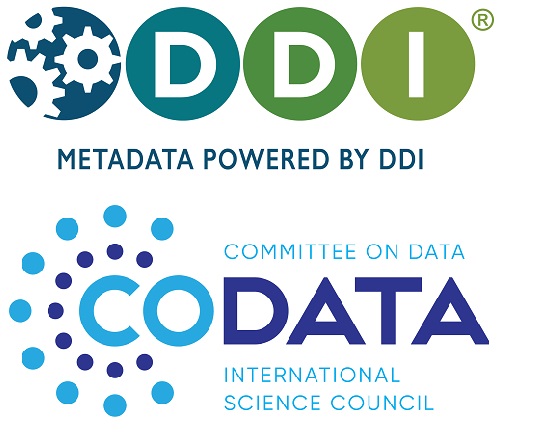 The goal of the DDI-Cross-Domain Integration (DDI-CDI) workshop on 24 March 2023 was to explain the mechanism employed by DDI-CDI and how it can most easily be leveraged to enhance the reusability of research data. Sixty colleagues attended this hybrid workshop on 24 March, organised alongside Research Data Alliance Plenary 20, and the slides and recording are now available for those who would like to catch up with – or revisit – the material presented on the day.
The goal of the DDI-Cross-Domain Integration (DDI-CDI) workshop on 24 March 2023 was to explain the mechanism employed by DDI-CDI and how it can most easily be leveraged to enhance the reusability of research data. Sixty colleagues attended this hybrid workshop on 24 March, organised alongside Research Data Alliance Plenary 20, and the slides and recording are now available for those who would like to catch up with – or revisit – the material presented on the day.
DDI-CDI is a model-based, platform- and technology-independent specification designed to supplement the metadata holdings of data disseminators, archives, and producers. By allowing for an expression of structural metadata, with references to external controlled vocabularies and ontologies, and by connecting metadata records intended for discovery, provenance, and process description, DDI-CDI can act as a connector format which is independent of domain standards. Typically, it can be produced in a programmatic fashion from existing metadata records held in more domain-specific models, although it can also be used as a stand-alone specification. It supports granular, machine-actionable description of a wide variety of data, from traditional wide data files to event/streaming data to key-value (“big”) data and multidimensional cubes.
At the workshop, the DDI-CDI team presented an overview followed by a series of worked examples, with an exploration of different types of implementations and features of the standard in each, to help participants understand not only what DDI-CDI is intended to do, but also how it works to complement other popular metadata models and standards. Different syntax representations of the standards were discussed.
DDI has long published metadata standards for the social, economic and behavioural sciences, which are widely used among data producers and archives, including those in the CESSDA network such as the Swedish National Data Service, the UK Data Archive, Sciences Po, Gesis, Sikt – the Norwegian Agency for Shared Services in Education and Research, and many more. DDI-CDI represents an evolution reflecting the growing importance of cross-disciplinary research and the requirement for data services to describe new types of data coming from other domains. The result is a specification which can describe any data in a domain-agnostic fashion and is useful within domains for which other DDI specifications are not relevant. Because of this domain independent feature, it has become central to the WorldFAIR project work on the Cross-Domain Interoperability Framework.
The workshop recording is available here, and the slides are available below:
– DDI-CDI: Optimising Your Data Description for Integration and Reuse, Arofan Gregory
– DDI-CDI Specification Model-Driven Development, Joachim Wackerow
– DDI-CDI at UK Data Service, Darren Bell and Deirdre Lungley
– Use case: DDI-CDI and process workflow (pt. 1), Hilde Orten
– Use case: DDI-CDI and process workflow (pt. 2), Benjamin Beuster
Find out more about DDI-CDI here: https://ddialliance.org/
